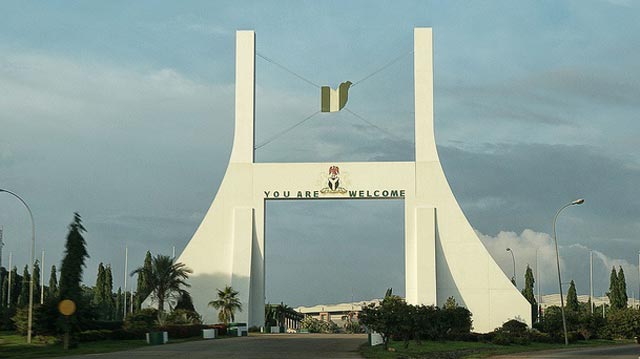Dr Kandeh Yumkella, two-term former Director-General of United Nations Industrial Development Organisation (UNIDO), says Nigeria needs to be consistent in implementation of its energy policies to experience development of the energy sector.
Yumkella told the News Agency of Nigeria (NAN) in Abuja that consistency in implementation of energy pricing for electricity was key to attracting the right investors into the sector.
The Federal Government, through the Minister of State for Budget and National Planning, Mrs. Zainab Ahmed, recently hinted that it was considering a review of the power sector privatisation, beginning with the Distribution companies (Discos).
Ahmed had explained that before any new investment was made in the sector, tariffs must also be discussed and agreed by all sector players to attract new investors.
She had said: It’s very clear to us that the level of tariffs that we have now is not sustainable but where the tariffs will go will be the subject of negotiations among the government, the existing investors, the new investors and consumers.“
Similarly, the power Distribution Companies (DISCOs) and the Transmission Company of Nigeria (TCN) had also emphasised the need for cost reflective tariff to salvage the deteriorating sector.
The DISCOs had repeatedly attributed inability of the sector to breakeven to the liquidity challenge.
This, they said, had impeded full realisation of its mandate, especially on mass metering of their residential consumers.
Among the principles and assumption underlying introduction and implementation of Multi Year Tariff Order (MYTO) is the important principle of cost recovery and financial viability for the licensees and investors.
To what extent has the current power sector tariff aided the development of the nation’s electricity industry, is a question agitating the minds of electricity operators, stakeholders and consumers.
While some consumers are not disposed to further upward review of the tarrif, some still believe that there is the need for adequate price fixing to ensure development of the sector.
Yumkella, also a former Chairman of UN-Energy, however, said it was cherry that Nigeria unbundled its electricity sector that ushered in private sector participation.
He, however, said that it was necessary to adhere to the agreement reached on tariff with the private sector after unbundling the sector.
“The private sector were promised a certain tariff rate, it is based on that tariff understanding that they borrowed money; you have to stick to it, that should not be re-opened and re-negotiated otherwise you will discourage other private sectors to getting involved in the sector.
“It took a long time to arrive at that tariff negotiation and I think government should implement that fully; that is what I mean by consistency and you see that consistency in Ghana.
“Ghana has one of the best electrification rates in West Africa because they have been consistent in the last 30 years, with their energy policy.
“Their government changes but the energy policy does not change; in fact they improve on it and scale it up; here it fluctuates, for me it is a matter of sending solid signal to the market.
“South Africa, it is very clear companies keep coming and investing in the energy sector, both domestic and foreign bankers, but if the companies see too much changes they keep their money.“
He said the attainment of 7,000 mega watts of power generation was apt, adding that Nigeria required more electricity to develop, given its rising population.
“The issue here is that you need much more than that, given your population growth, given the way you want to industrialize; this is why it makes sense to look at those Memorandum of Understanding (MoUs).
“ Why do companies get discouraged after they sign MoUs, what can government do to send the right signal to potential investors, both domestic and foreign, that want to enter the energy sector.
“Because 7,000MW is a drop in the bucket for what Nigerian needs, which means you need much more private sector players, so you need a genuine reflection on what is discouraging investors from coming.
“It requires a genuine assessment and government should see itself as a facilitator that removes the barriers to ensure confidence in the operators.“
He said it was important for the regulator to focus more on energy pricing across the value chain.
“Energy pricing is always an issue and what price can the operators charge for the energy they generate or distribute.
“ I think government needs to be very bold at energy pricing and I believe people will be ready to sacrifice a little bit more money now for more reliability in the future.
“Even Egypt raised energy tariff some few years ago because they were experiencing outages.
“As sensitive as it is, the price signal has to be clear and it has to stay there for 10 to 20 years to give confidence.“
On gas pricing, he said Nigeria’s future would depend on the development of its gas deposits and other petrol chemical products.
“Government should solve the pricing question to signal and guarantee investors that will last for 20 years and Nigeria has people with liquidity and brave investors that are investing here and internationally.
“They will be ready to built those power plants, refineries that will make Nigeria industrialise and you need to industrialise fast because your population is going to be 300 million or more in another 35 years.
“What are you going to do if those kids do not have jobs, this should send the sense of urgency here.
There is no time to waste, we have to have an energy revolution,“ he said
According to him, there are Nigerians, banks that are ready to invest for the development of the power sector, given the presence of consistency in implementation of energy policies.

